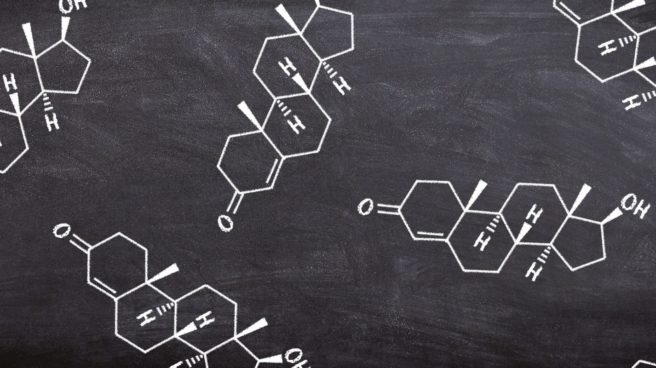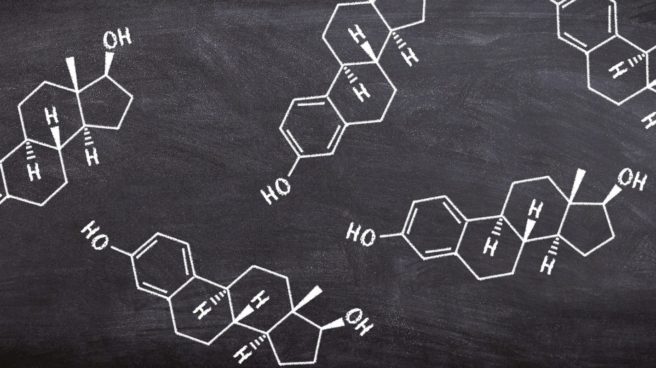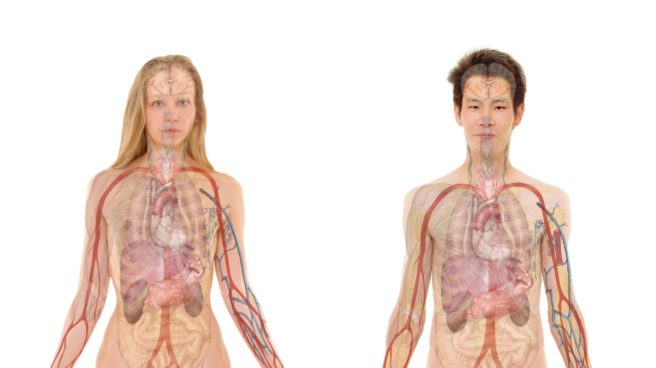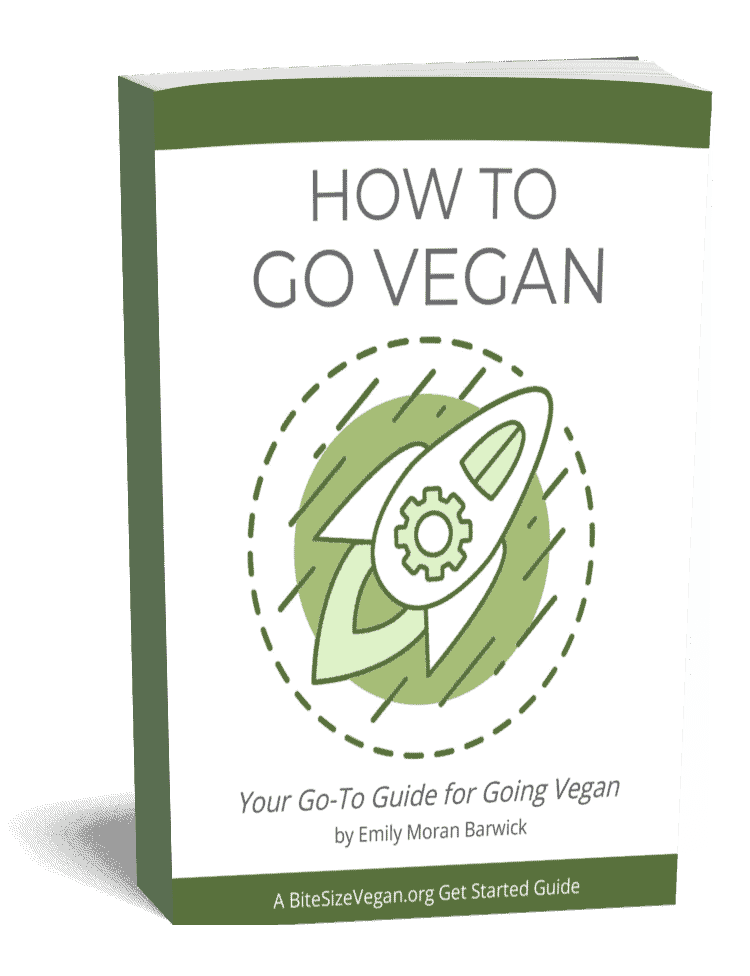Many men cite soy’s estrogen-promoting effects as a reason not to go vegan, with concerns of lowered testosterone, gynecomastia, and hormonal imbalance. But does soy really have a detrimental impact on men’s health?
What we eat has a significant impact on our body’s hormonal balance of testosterone and estrogen in our bodies. More than any other food, soy has long been vilified as an estrogen-boosting food, often cited by men as a reason to not go vegan.
Beer, on the other hand, is stereotypically associated with manliness and virility—liquid testosterone even, if we’re to believe some commercials. [for a vegan guide to alcohol!]
But outside of the Internet hype and advertiser hyperbole, what is the true hormonal impact of what we put in our bodies?
It’s no secret that what we eat affects our health, though you’d never know that from speaking with the vast majority of medical doctors. I cannot even count the number of times I’ve heard from men that they can’t go vegan because of the estrogenic effects of soy, with the most-often offered pejorative “man boobs” being a main concern.
In this third installment of the Men’s Health Series with Dr. Michael Greger of Nutritionfacts.org, we’ll get to the bottom of the soy controversy and see what foods and beverages are the most beneficial or detrimental to testosterone levels. For more in depth information on testosterone and diet as well as what to eat and avoid for erectile dysfunction, be sure to check out the first two videos in the series.
Now let’s hear what Dr. Greger has to say about the hormonal impact of diet.
Addressing the soy controversy and concerns men have of estrogen-promoting effects:
“1951 Australia—that’s where it all starts. Where we have two Australian chemists who are tasked with trying to solve the mystery of why sheep in Australia were becoming infertile, devastating the wool industry in Australia.[1] These two chemists discovered that it was the clover—that there was clover that had a phytoestrogen called “genistein,” the same phytoestrogen found in soy. And it had these estrogenic effects and it was affecting the fertility of the sheep.
And so if you go online and you read about the dangers of soy, you’ll see “the dreaded clover disease”—lots of allusions to “the dreaded clover disease.” But you’ll notice what they don’t talk about is the dosing.
To get as much of this phytoestrogen in your body as the sheep were in clover, one would have to drink—one would have to eat 8,000 soy burgers a day or 800 pounds of tofu or 1,000 cartons of soy milk a day. And only then would you get the same kind of effects that these poor sheep were getting.[2][3]
Now that’s not to say you cannot over do it. There have been two case reports in literature of feminizing effects in men eating as few as like 14 to 25 servings of soy a day, alright?[4] But at any reasonable amount of soy intake—so these were men drinking gallons of soy milk a day—but if you stick to less than 14 servings a day of soy, no feminizing effects ever reported.[5] And in fact, have beneficial effects for prostate health etc. etc.”
On what foods in are best to balance or enhance male hormonal levels:
“It will be a plant-based diet, as I talked about before. Avoiding beer actually. It’s interesting the most potent phytoestrogen in the world is not in soy—it’s in beer.[6][7]
So some of these German scientists saw this work in Australia and said “Ah hah! That’s why female hop-pickers start menstruating as soon as they start touching hops.” And that’s because of this powerful estrogenic effects of “hopein,” which is the phytoestrogen found in the bittering agent in beer.[8]
And indeed, women who drink beer actually have stronger bones, less hot flashes, et cetera—and that’s because of this phytoestrogen effect. Unfortunately, the phytoestrogen in beer attaches preferentially to alpha estrogen receptors, as opposed to beta estrogen receptors, increasing the risk of breast cancer.
So the reason that you see hop extracts in so-called breast enhancement supplements is because of that phytoestrogenic effect, whereas soy phytoestrogens attach preferentially to beta receptors, unlike your own estrogens—your own endogenous estrogen. And so actually have a breast cancer reducing effect through the same protective effect in terms of hot flashes.[9][10]
And so alcohol itself can decrease testosterone levels, but beer in particular. So I’d encourage people, if they’re worried about testosterone, they shouldn’t be chugging a 6-pack.”
Emily: It’s kind of astonishing how there is the stereotype that for men the way to be the manliest you can possibly be is to be consuming you know a bunch of meat and drinking a lot of beer. And it sounds like it’s kind of the worse maybe you can have for sexual performance and testosterone levels.
Dr. Greger: And life span.
I hope you enjoyed hearing from Dr. Greger on the estrogenic affects of soy and—surprisingly—beer. The hormonal impact of what we eat reaches far beyond fears of feminization, as we saw with the cancer promoting effects of hops and cancer reducing effects of soy.
Regardless of gender, the hormones in what we consume can have life-altering and life-ending consequences.
Now I know tracking nutrition can be a pain, so I wanted to let you know about Cronometer. It’s a free website and app that I’ve used in several of my videos because of it’s uniquely detailed nutrition reports and ease of use. Plus, they were awesome enough to sponsor the Dr. Greger nutrition series, to help get that vital educational info out, and have come on board for the remainder of the Men’s Health Series as well! Be sure to head over for your free profile!
You can also find links to relevant studies and Dr. Greger’s site on the blog post for this video linked in the description below.
Please share this video around to help men take hold of their health. Be sure to subscribe to the channel to not miss out on the rest of the Men’s Health Series.
To support free education like this, please see the support page or join us in the Nugget Army on Patreon.
Now go live vegan, give soy a break, and I’ll see you soon.
— Emily Moran Barwick







They can’t go vegan because they do want to. They will write or believe anything a meat eating person tells them.
A chose between a plant based diet and a meat diet, who would not chose a plant based diet as healthier.
Thank you for your well thought out and researched videos! You are awesome!
You should do a video about GMOs. There is strong evidence that they are unhealthy. Our bodies do not recognize the genetically modified food as well which results in fewer absorbed nutrients. In addition, GMO crops have “built-in” pesticides or are heavy sprayed with powerful herbicides (glyphosate based roundup) which are poisonous to the human body.
Keep up the great work and thank you for your message!
Thank you so much! I do have that on the list… hope to get to is soon. There are so many!!
very interesting read, glad this information is out there!
Very good information! Thank you and I will check out more of your posts about the soy as well because I’ve been researching the soy myth for the longest time and most sources say pretty much the same as this post. It’s impossible to consume enough soy to have any real effect on hormones.
I have come across numerous articles (but not studies) on phytates and enzyme inhibitors (namely trypsin) that soy contains, as well as goitrogens that apparently mess up the thyroid.
If you come across more info on that or hear from Dr. Gregor again I’d love to know more.
Thanks